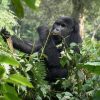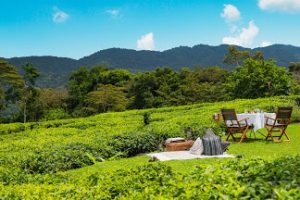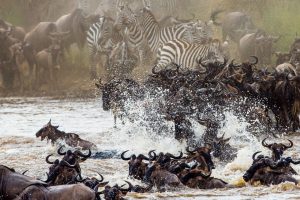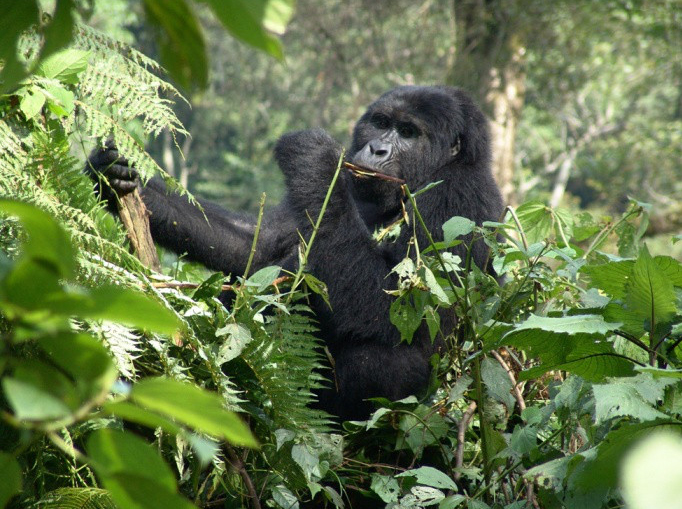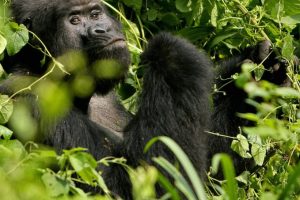There is no better way to explore Africa than road tripping it on your own. If you want to see the African wildlife and enjoy the native (especially Masai) culture, then travel to Tanzania. A number of rental companies offer 4WD campers. These usually have everything you need to be entirely self-sufficient, including a rooftop and/or ground tent or a pop-top with rooftop sleeping area.
They also have fridges, a gas stove, cooking equipment and cutlery, bedding, camp tables and chairs. Up-front costs for such vehicles can be high from 80 to 120 per day, and often going much higher), but the assumption is that you’re paying both for transport and accommodation in one hit. In such cases, the only additional costs are campsite and national park fees and food which you can buy at a supermarket both of these additional outlays are generally cheap in most African countries.
A number of operators offer these kinds of vehicles, among them is 4×4 Car Hire Uganda. At the upper end of the self-drive market, there are options for those who want the best of both worlds: to experience the thrill of driving off-road, stay in more luxurious lodges and tented camps, and let someone else make all of the arrangements.
But if you have never before been on a self-drive safari, one of the great pleasures of travelling in Africa awaits. If you’re lucky, you’ll spend your days tracking down mountain gorillas in Uganda or Rwanda, discovering wildlife safaris in Kenya or Tanzania, from elephants and rhinos to big cats, buffaloes and giraffes.
But in Africa, experiences will vary depending on your budget and the type of accommodation, whether you’re camping, sleeping in lodges, or sleeping in a luxury tented safari camp, some elements remain constant and here’s what to expect.
In the Morning hours
Most days on safari begin before dawn. While watching the sunrise in Africa is reason enough to rise before the sun, you’re also up early because the first two hours of daylight are the best times to see wildlife in the cool of early mornings, most animals are out and about and active and even some of the nocturnal species such as hyena.
Even so, there should be no need for an alarm clock on most safaris, a camp attendant will wake you, a quiet African voice coming from the darkness. Sometimes you will be served tea and coffee in your tent, and there may be light breakfast snacks available in the camp’s communal areas while everyone assembles.
As close to dawn as everyone can manage, you’ll be on the trail of wildlife, most often in an open-sided safari vehicle with tiered seating. The norm is that you’ll will not share your vehicle, it’s a private self-drive car The better camps will provide you with blankets – mornings can be decidedly (and, for some, unexpectedly) chilly.
Sometimes called ‘game drives’ in a nod to the safari drives of old, wildlife drives can last for two hours or even twice that it all depends on what’s happening in terms of wildlife sightings. Very often, guides and drivers from the same camp will be in touch with their colleagues over the radio to make sure that everyone in camp gets to see the same wildlife where possible.
Drives in 4WD vehicles are the most common ways to explore Africa, though walking safaris are sometimes a possible alternative if you’re staying in a private conservancy; outside of Kenya and Tanzania, walking options are rarely permitted in national parks. Boat excursions are another possibility in some areas, such as the dugout Tanzania’s Selous Game Reserve, Uganda’s Queen Elizabeth, Murchison Falls, Lake Mburo National Parks, and Lake Bunyonyi, and Akagera National Park in Rwanda.
The heat of the day
If your safari experience includes the option of a visit to a local village or some other non-wildlife excursion, then it will most likely occur around this time. Afternoon tea sometimes called high tea – is an old safari tradition, and is ordinarily served around mid-afternoon, between 3pm and 4pm. How much food and drink are offered varies from camp to camp, but you’ll rarely leave hungry, and high quality cuisine is increasingly a part of the safari camp offering.
Late afternoon & evening
As the heat of the day passes, you’ll leave camp for another wildlife drive or walk, or boat excursion. These usually last for a couple of hours, and before you return to camp, most safari drives will pause at a scenic site for what’s known as the ‘Sundowner’, another venerable old safari custom. Nursing the drink of your choice while watching the sunset overlooking a waterhole or acacia-framed golden grasslands of the savannah.
If you’re visiting a national park, you’ll need to leave the park if you’re staying outside or be back in camp and if you’re staying inside before the sun sets. If, on the other hand, you’re staying in a private or community-run conservancy, there are restrictions about driving after dark. In such cases, you’ll return later to camp on some nights, taking advantage of the opportunity to spot nocturnal species using an animal-friendly spotlight but this has to be a guide.
While this could be all kinds of species that you can also see during the day, a night drive opens up a whole world of other possibilities. Another advantage of these conservancies in Kenya and Tanzania is that, day or night, your driver may be allowed to drive off-road as they try to find wildlife.
Whenever you arrive back in camp, you’ll be given time to freshen up, and change for dinner. In the more luxurious lodges and camp, you may be expected to dress for dinner as you might in a high-class restaurant. More often, a change of clothes is more about comfort than dress codes. In some camps, there may be a pre-dinner lecture by a naturalist or some form of cultural entertainment.
When it comes time to return to your tent or room, chances are that you’ll be escorted by a camp attendant with a torch, just to make sure that you don’t stumble upon an elephant, lion or buffalo that may be hanging around camp at night. And then the lights go out and you fall asleep to a chorus of the night noises of Africa.




